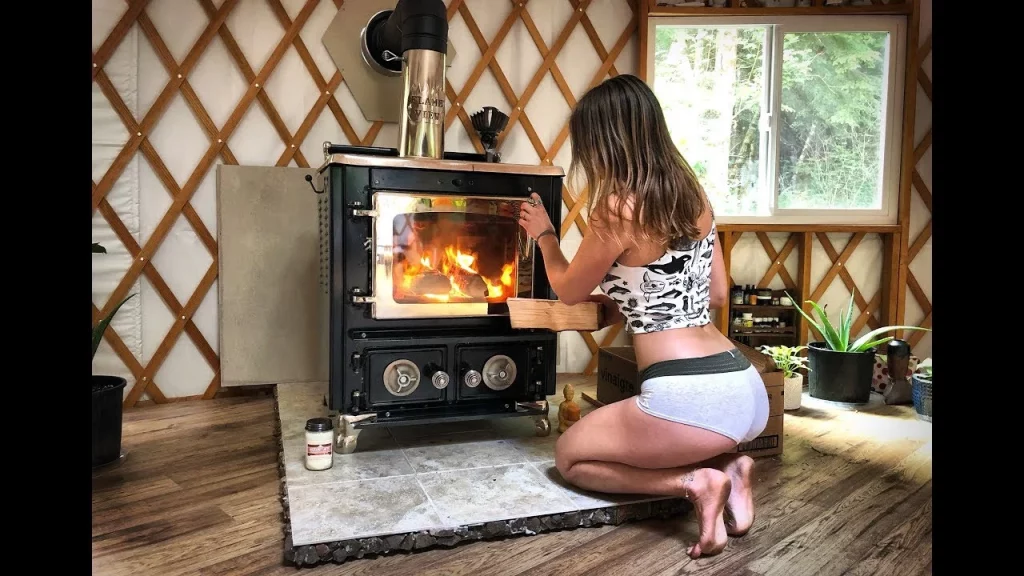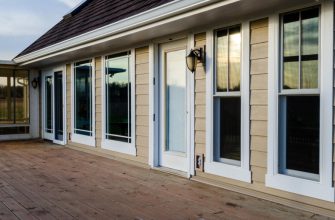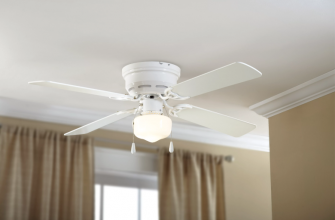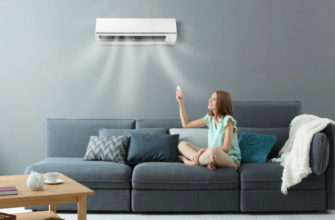Heating a mobile or manufactured home efficiently can be a challenge. With less insulation and more exposure to outdoor elements, keeping a mobile home warm in winter takes some extra effort. This is where a wood stove can make a big difference.
Wood stoves allow you to heat a space using a renewable fuel source – wood. They burn very efficiently, transferring up to 80% of the firewood’s energy into usable heat for warming your rooms. This makes them a cost-effective and earth-friendly way to heat a mobile home.
However, not just any wood stove can be safely installed in a mobile home. Special mobile home approved wood stoves are designed and tested specifically for use in manufactured housing. They have important safety features to prevent fires and ensure proper draft.
In this comprehensive guide, we’ll cover everything you need to know about selecting, installing and using a wood stove tailored for a mobile home. Read on to learn the benefits, critical factors to consider, top products on the market, proper operation and maintenance tips, and more.
- Understanding the Use of Wood Stoves in Mobile Homes
- Benefits of Mobile Home Approved Wood Stoves
- Safety and Regulations for Installing Wood Stoves in Mobile Homes
- HUD Approval for Mobile Home Wood Stoves
- Meeting Specific Conditions for Installation
- Using Outside Air Kit
- Securing the Stove to the Floor
- Complying with Clearance and Hearth Regulations
- Cost-Effective Heating Solutions for Mobile Homes
- Comparing Energy Efficiency of Wood Stoves, Electric and Gas Furnaces, and Heat Pumps
- Advantages of Wood Advantages of Wood Burning Stoves for Cost-Efficient Heating
- Energy Savings and Efficiency
- Reliability During Power Outages
- Types and Features of Mobile Home Approved Wood Stoves
- HUD-Approved Wood Stove Options
- High Efficiency Wood Stoves
- Cast Iron Wood Stoves
- Overview of Trusted Brands and Models
- Maintaining and Operating Wood Stoves in Mobile Homes
- Proper Operation and Maintenance Tips
- Safety Precautions and Best Practices
- Longevity and Performance Considerations
- Final Thoughts on Choosing and Using Wood Stoves for Mobile Homes
Understanding the Use of Wood Stoves in Mobile Homes
Mobile and manufactured homes have some unique structural considerations when it comes to installing and using a wood stove.
Being less insulated than site-built homes, mobile homes can lose heat rapidly in cold weather. Well-insulated walls and ceilings are key for efficiency. But adding a supplemental heat source like a wood stove can make a dramatic difference in keeping warm affordably.

Mobile homes also have special safety considerations related to fire hazards and carbon monoxide risks. That’s why the U.S. Department of Housing and Urban Development (HUD) has established strict guidelines and testing procedures for approving wood stoves intended for use in manufactured housing.
HUD standards require these stoves to be airtight and tested to prove they draw properly up the chimney rather than back into the home. This prevents deadly CO leaks as well as potential fire hazards from sparks escaping the firebox.
In short, mobile home approved wood stoves are specifically designed, engineered and rigorously tested to be used safely and effectively in manufactured housing.
Benefits of Mobile Home Approved Wood Stoves
Installing an approved wood stove tailored for manufactured housing offers many benefits:
- Lower heating bills – Wood stoves use lower-cost wood as fuel instead of expensive propane or electric heat.
- High efficiency – Advanced secondary combustion systems extract up to 80% of firewood’s BTUs into home heating.
- Zone heating – Stoves strategically heat the main living zone without wasting energy on unused rooms.
- Ambiance – Nothing beats a cozy crackling fire on a cold winter night!
- Reliability – Wood stoves provide reliable backup heat during power outages when furnaces shut down.
- Tax incentives – High efficiency stoves that meet EPA emissions standards qualify for valuable tax credits to offset purchase costs.
On top of these benefits, HUD approved wood stoves give manufactured homeowners crucial peace of mind – knowing the stove is specifically engineered and tested for safe, effective use in their mobile home.
Safety and Regulations for Installing Wood Stoves in Mobile Homes
Special safety rules and regulations apply when installing a wood stove in a mobile or manufactured home.
HUD maintains strict standards that wood stoves must meet to be approved for use in factory-built housing. Proper installation is also critical for preventing fire risks or carbon monoxide dangers.
HUD Approval for Mobile Home Wood Stoves
The stove model must be HUD approved for use in manufactured housing. HUD tests involve assessing:
- Airtightness.
- Pressure testing.
- Chimney draft.
- Heat output.
- Fuel efficiency.
- Emissions.
HUD also evaluates the manufacturer’s quality control standards in producing the stove.
Meeting Specific Conditions for Installation
Even HUD approved stoves must be properly installed meeting requirements on:
- Floor protection.
- Clearances to combustibles.
- Chimney type.
- Termination requirements.
- Use of outside air.
Using Outside Air Kit
An outside air kit is mandatory when installing a wood stove in a mobile home. This pipes fresh air directly into the stove from outdoors instead of using indoor air for combustion.
Bringing in outdoor air prevents negative pressure problems that could lead to smoke or carbon monoxide being pulled back down the chimney and into the living space – very dangerous!
Securing the Stove to the Floor
Wood stoves must be secured directly to the floor of the home using lag bolts into floor joists. This prevents the stove from shifting or tipping over during an earthquake or tornado.
Complying with Clearance and Hearth Regulations
HUD rules dictate minimum clearances between stoves and interior walls or ceilings. Specific non-combustible floor protection is also mandatory under and around the stove to prevent fire risks.
When installed properly meeting all HUD guidelines, an approved wood stove is perfectly safe for warming a mobile home. Safety is in the design and execution.
Cost-Effective Heating Solutions for Mobile Homes
Heating and cooling costs account for nearly half of an average household’s energy expenditures. This burden can be especially heavy in a mobile home.
Factors like less insulation, higher air leakage rates, and smaller size can cause manufactured homes to lose heat rapidly during cold weather. Keeping warm on a budget takes some thoughtful planning.
Comparing Energy Efficiency of Wood Stoves, Electric and Gas Furnaces, and Heat Pumps
Common heating systems used in mobile homes include:
- Electric furnaces – Simple, low maintenance option but operating costs can be higher.
- Gas furnaces – Propane furnaces provide comfortable warmth but fuel prices fluctuate.
- Heat pumps – Absorb ambient heat from outdoor air but efficiency drops sharply in cold climates.
- Wood stoves – Burn renewable wood fuel and transfer up to 80% of heat energy into living space.
Of these options, approved wood stoves offer the best mix of low fuel costs and high heating efficiency. They are a proven, cost-effective solution tailored for manufactured homes.
Advantages of Wood Advantages of Wood Burning Stoves for Cost-Efficient Heating
Energy Savings and Efficiency
With advanced combustion systems, today’s EPA certified wood stoves convert up to 80% of firewood’s BTUs into usable radiant and convective heat. This exceptional efficiency – on par with modern furnaces – enables large energy savings.
Wood as a fuel is also far less expensive than electricity, natural gas or propane on a per million BTUs basis. Given wood stoves’ high efficiency, this translates to significant savings on annual heating bills for a mobile homeowner.
Reliability During Power Outages
Unlike furnaces and heat pumps that depend on electricity, wood stoves provide reliable heat during power failures. This gives manufactured homeowners crucial backup heating to prevent frozen pipes and weather storms comfortably when the power goes down.
Wood stoves will keep you warm even when wintery weather knocks out your furnace’s electric supply. The peace of mind is invaluable.
Types and Features of Mobile Home Approved Wood Stoves
If you’ve decided a wood stove is right for heating your manufactured home, choosing a specific HUD approved model tailored for your space is key.
Top manufacturers like Englander, US Stove, and Drolet offer excellent options to consider.
HUD-Approved Wood Stove Options
When selecting a mobile home approved wood stove, look for these desirable features:
- Advanced combustion system – For maximum efficiency up to 80%.
- Steel or cast iron construction – For durability and heat retention.
- Large firebox capacity – For longer burn times per refueling.
- Variable burn rate control – For easy adjustment of heat output.
- Blower fan – To better circulate warm air into living space.
- Large glass viewing area – For fire visibility and ambiance.
- Outside air intake – Mandatory for manufactured homes.
- Log retainers – Keep logs properly positioned for clean burns.
Also confirm that the stove appears on the HUD’s list of approved models tested specifically for mobile home use.
High Efficiency Wood Stoves
For maximum heating efficiency choose an EPA certified wood stove model. These are emissions-tested to strict federal standards verifying their advanced combustion systems and low particulate emissions.
EPA compliant stoves convert up to 80% of firewood into usable heat through better secondary combustion. This also results in far less air pollution and smoke than traditional wood stoves.
Cast Iron Wood Stoves
Cast iron is valued for its unmatched heat retention properties. Models like the Englander 30-NC cast iron stove offer great thermal mass to provide steady, even heating for hours after refueling.
Cast iron’s durability also withstands years of frequent use while resisting corrosion. Adding special porcelain enamel coatings helps it maintain an attractive fine finish over its service life.
Overview of Trusted Brands and Models
When searching for an approved wood stove for your mobile home, these top manufacturers produce reliable HUD compliant models to consider:
- Englander – Several models approved for mobile home installation like the Englander 30-NC.
- US Stove – Known for their quality stoves combining cast iron and steel like the Wiseway Gravity Vent.
- Drolet – Offers value-priced stoves meeting strict certification standards, including their Drolet Escape 1500.
Each of these brands offer great options for safely heating your manufactured home with an HUD approved wood stove tailored for tight spaces.
Maintaining and Operating Wood Stoves in Mobile Homes
To achieve the best performance and longest service from a mobile home wood stove, proper operation and maintenance are crucial.
Proper Operation and Maintenance Tips
Follow these best practices for using your wood stove safely and effectively:
- Burn only dry, well-seasoned firewood for clean burns and maximum heat value.
- Use smaller split logs to build hotter fires that burn more completely.
- Let the fire burn hot before closing the draft controls for efficient secondary combustion.
- Refuel carefully to prevent smoking, opening drafts fully until new wood kindles.
- Remove ash regularly before it builds up and blocks airflow.
- Use a stove-top thermometer to monitor your burn temperatures.
- Have your chimney cleaned annually by a professional technician.
- Perform regular maintenance like door gasket and glass replacements when needed.
Safety Precautions and Best Practices
Exercise caution when operating your wood stove to prevent safety issues:
- Keep combustibles like furniture, drapes and wood piles away from the hot stove.
- Wear stove gloves when manipulating damper controls or opening/closing doors.
- Use a fireplace screen to prevent flying sparks and embers.
- Instruct children to stay away and never touch the stove.
- Install smoke and CO detectors as an early warning for combustion issues.
- Have a plan to evacuate and an ABC rated fire extinguisher in case of emergencies.
Longevity and Performance Considerations
With proper installation, operation and maintenance, a quality wood stove will provide decades of reliable service.
Burn only dry seasoned wood to prevent creosote buildup in the flue. Have your chimney cleaned each year before the heating season begins.
Replace consumable parts like door gaskets when they become worn. Use a stove thermometer to monitor your burn temperatures for peak efficiency.
Protect exterior surfaces with high temperature paint when needed to maintain the attractive appearance of your wood stove investment over many years of enjoyable winter warmth.
Final Thoughts on Choosing and Using Wood Stoves for Mobile Homes
Heating a mobile or manufactured home affordably can be challenging. HUD approved wood stoves provide an efficient, cost-effective solution tailored specifically for tight factory-built housing.
Advanced models like those from Drolet, Englander and US Stove combine high efficiency combustion, steel or cast iron durability, ample heating capacity and crucial safety testing for use in mobile homes.
Exercise caution when installing these stoves, meeting all clearance requirements and using outside air kits. Employ best practices in burning only seasoned wood for clean, efficient fires.
With a quality mobile home approved wood stove as part of your heating strategy, you can stay warm on winter nights while also staying within budget. The cozy glow of the fire provides comfort during cold snaps and crucial backup when the power goes down. That adds up to invaluable peace of mind in your home.









